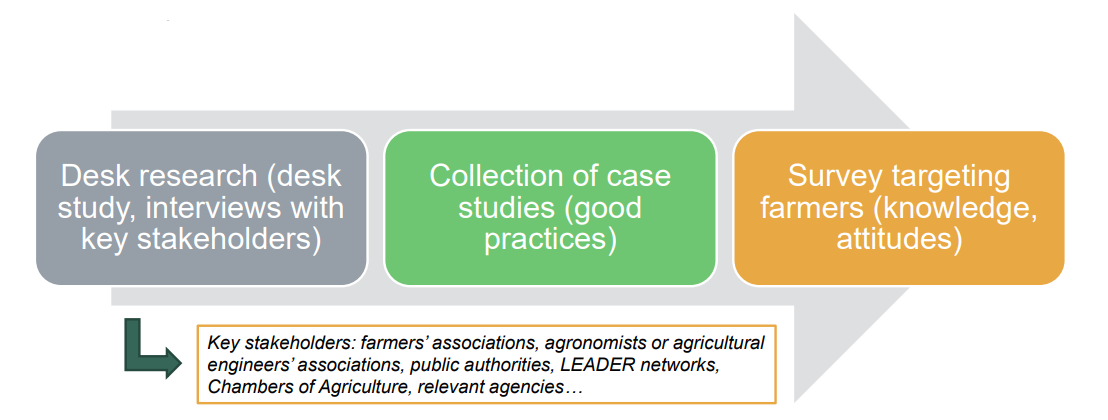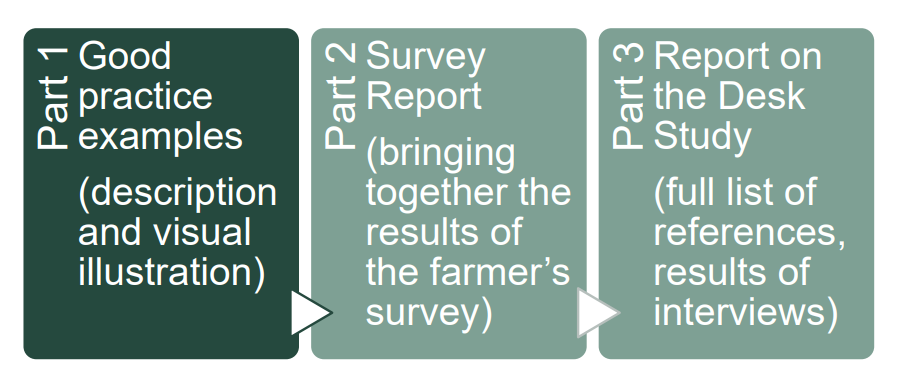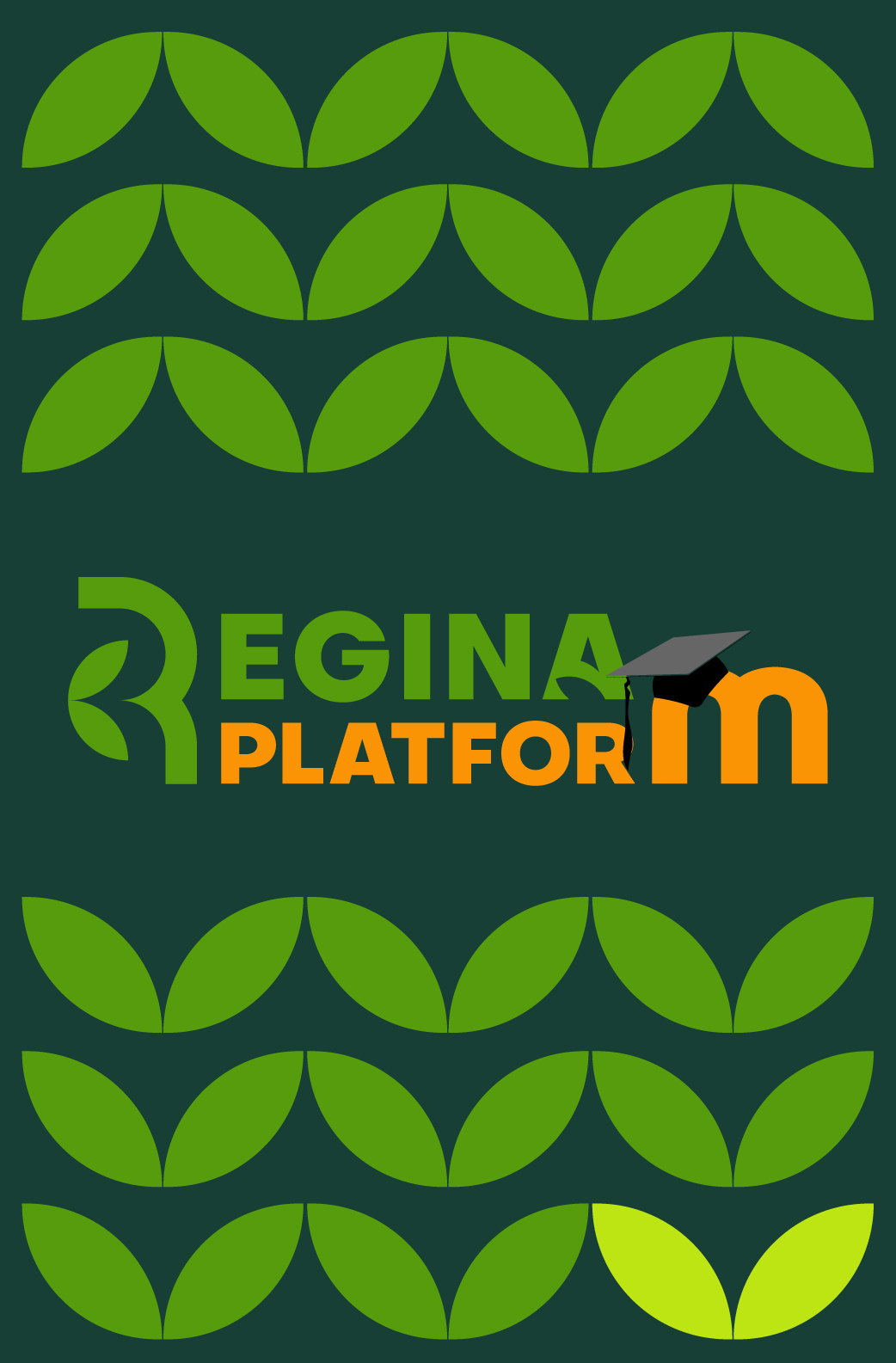Library of good practices
The objective of this activity is to create a library of information, including best practice in the participating countries and across Europe, to be integrated in the learning process. The Library will target all prospective students of REGINA courses.
To create the Library, partners have followed the methodology:
- conducting a desk research
- conducting interviews with key stakeholders in each country (such as farmers’ associations, agronomists or agricultural engineers, relevant public authorities, LEADER national networks, Chambers of Agriculture and other relevant agencies)
- contacting farmers and conduct a case-study, to be included in the Library of Good Practice.
- conduct an online questionnaire survey in each implementing country to assess the extent of RA outreach amongst farmers, provide a good indication of their state of knowledge and attitudes towards RA.

The Library consists of three parts:
- Success stories of RA: the good practice examples, each presented with a description and visual illustration in the form of video or photographs;
- National Reports of REGINA: a report bringing together the results and conclusions of the farmers’ survey, pointing out the skills and knowledge gaps that must be filled in order to spread the practices of RA and achieve its environmental benefits;
- Synthesis Report of REGINA: a report bringing together the results of the desk study, with full list of references, and the results of the interviews with stakeholders in the 5 participating countries, and in the EU more generally, making reference to the history of RA development, legislation that possibly regulates this activity, and the views of key stakeholders on the existing outreach of RA to farmers can be improved.

This study is an innovative product in relation to the RA literature, because it will bring together a variety of components that influence the uptake of Result Description (including: needs analysis, target groups, elements of innovation, expected impact and transferability potential) RA and will also draw conclusions on the possible drivers that have facilitated some countries to develop RA more than other countries.
This analysis is expected to have an impact on the policymakers and social partners in the field of agriculture, helping them to understand better the way RA has so far developed in the EU and the possible “drivers” for its further development and will provide a very useful learning resources to the target students of the project
You can access here the content of the Library of Good Practices:
National Reports in 5 countries:
National Report in Hungary (English language), National Report in Hungary (Hungarian language)
National Report in Greece (English language), National Report in Greece (Greek language)
National Report in Italy (English language), National Report in Italy (Italian language)
National Report in Slovenia (English language), National Report in Slovenia (Slovenian language)
National Report in Ireland (English language)
Synthesis Report of the conducted research:
Synthesis Report (English language)
Synthesis Report (Greek language)
Synthesis Report (Slovenian language)
Synthesis Report (Italian language)
Synthesis Report (Hungarian language)
Good practices of REGINA, success stories:
Library of Good Practices: Success Stories of RA

The REGINA project (No. 2021-1-HU01-KA220-HED-000027629) was funded by the European Commission. The content of this website does not necessarily reflect the views of the European Commission.
Call 2021, KA220 – Cooperation Partnerships in Higher Education
The European Commission’s support for the production of the publications does not constitute an endorsement of the contents, which reflect the views only of the authors, and the Commission cannot be held responsible for any use which may be made of the information contained therein.

